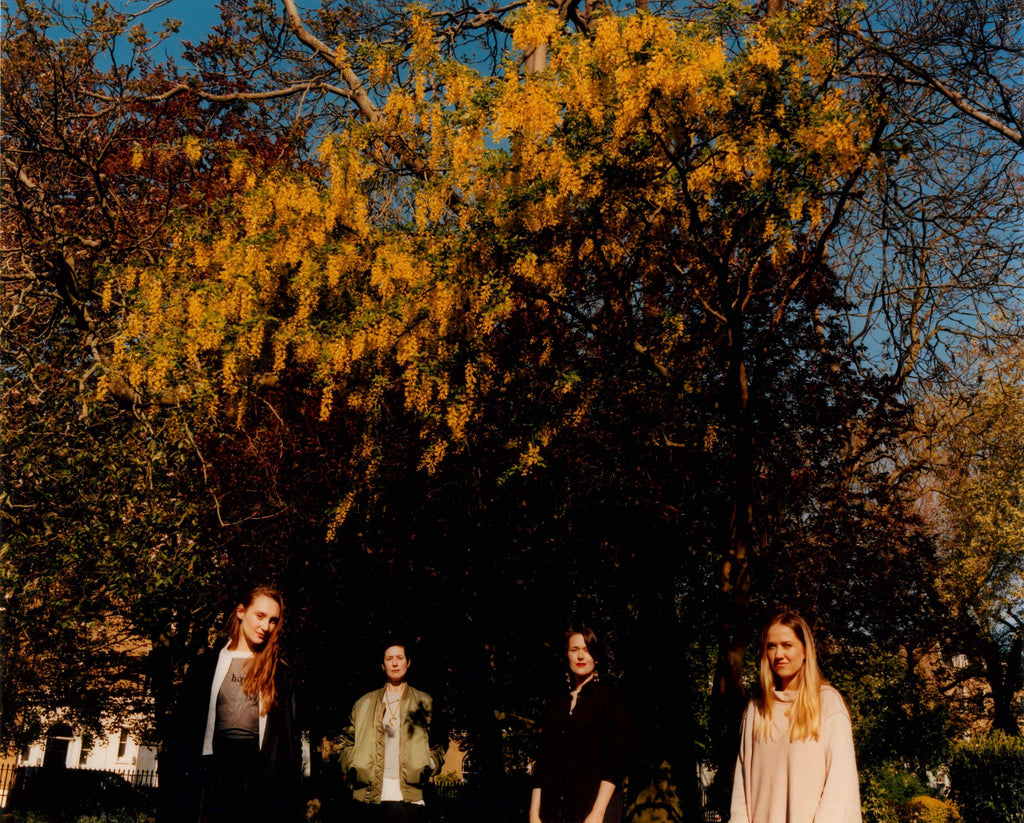Formed in March 2020, as a response to the Covid-19 pandemic – the Emergency Designer Network (EDN) was created by London-based designers Holly Fulton, Bethany Williams and Phoebe English. Now, alongside Cozette McCreery, it’s a volunteer-led enterprise that galvanises local production to support hospital stocks of key garments such as scrubs, vital armour in the fight against COVID-19.
As a collective we asked for the assistance of skilled sewers with sample machinist or garment industry background, manufacturers with sewing capabilities as well as donations – however small – to help fund the purchase of raw materials (NHS-certified fabrics, webbing, thread, etc).
After a North London hospital provided Emergency Designer Network with a sample set of scrubs, we deconstructed them and made a pattern from the pieces. A London grade house voluntarily adapted them into assorted sizes so that we could ensure that a broad range of hospital needs were met at a design level. There are two ways these patterns were turned into finished garments – working with a range of volunteer factories across the UK with capacity to manufacture scrubs, and sending postable design packs to skilled volunteer home makers from across the fashion industry.
For the volunteer factories, we provided them with hospital-approved patterns, NHS-certified fabric, and the webbing and thread required to make the garments. The scrubs were then constructed and washed in-house, in accordance with sanitation protocols, and then sent using voluntary courier services directly to the hospitals that have expressed need for them.
A Lancaster-based supplier provided us with a quantity of NHS-approved fabric, which was voluntarily cut into pattern pieces by a Nottingham facility. The trousers were sent to a London-based atelier who are inserting button holes (which requires specialist machinery). The trouser pieces, top pieces, thread, webbing and patterns were dispatched – alongside technical instructions – to makers around the country. We also provided them with donated material from which they can assemble masks for themselves to wear as they manufacture, alongside a safety code of conduct. After garments had been constructed, a voluntary courier service picked them up and took them to an industrial facility where they were washed at 90 degrees. They would then be sent directly to the hospitals that have expressed need for them.
As EDN started, we worked with an initial group of 10 small-scale UK manufacturers and designers. Over time EDN has brought together over 150 makers to make 10,000+ sets of scrubs and distributed them to 42+ individual hospitals, surgeries and care facilities. Whilst also supplying individuals who had approached EDN directly including midwives, ICU workers and Doctors, enabling them to have a personal supply of scrubs outside of the NHS chain.
The scrubs and robes made by EDN are hospital - but not government - approved, meaning that they adhere to many, but not all, manufacturing guidelines. These garments are not, and should not to be used in place of, government PPE, instead offering lower level protection to staff and carers or could be worn as an undergarment layer, allowing government- approved PPE to go where it is so desperately needed.
EDN were also able to work on the distribution of 50,000 medical grade face masks that were donated to us via Dazed Media – mainly being distributed between Black Lives Matter London protests organisers, hospices and the British Pregnancy Advisory Board.
Collectively we are continuing to work on finding both short and long term solutions for UK PPE. Longer term, we are trialling a new cloth for scrubs from our main supplier to reduce the temperature for the wearer and samples of a reusable gowns. If successful, this would offer a sustainable long term solution for UK NHS trusts, a key part of the EDN legacy.
